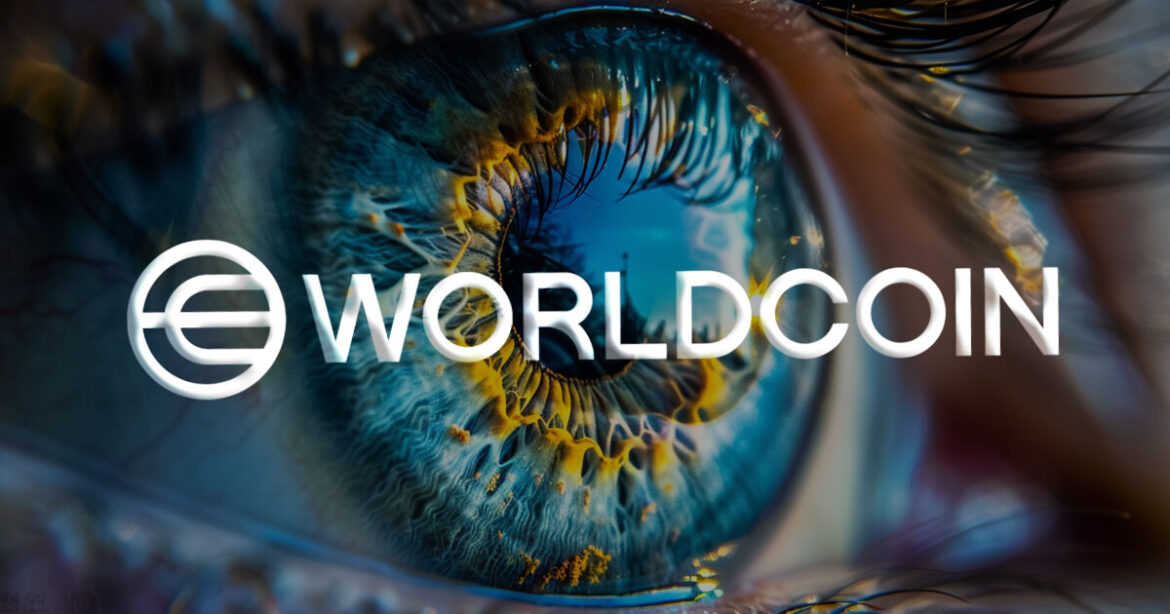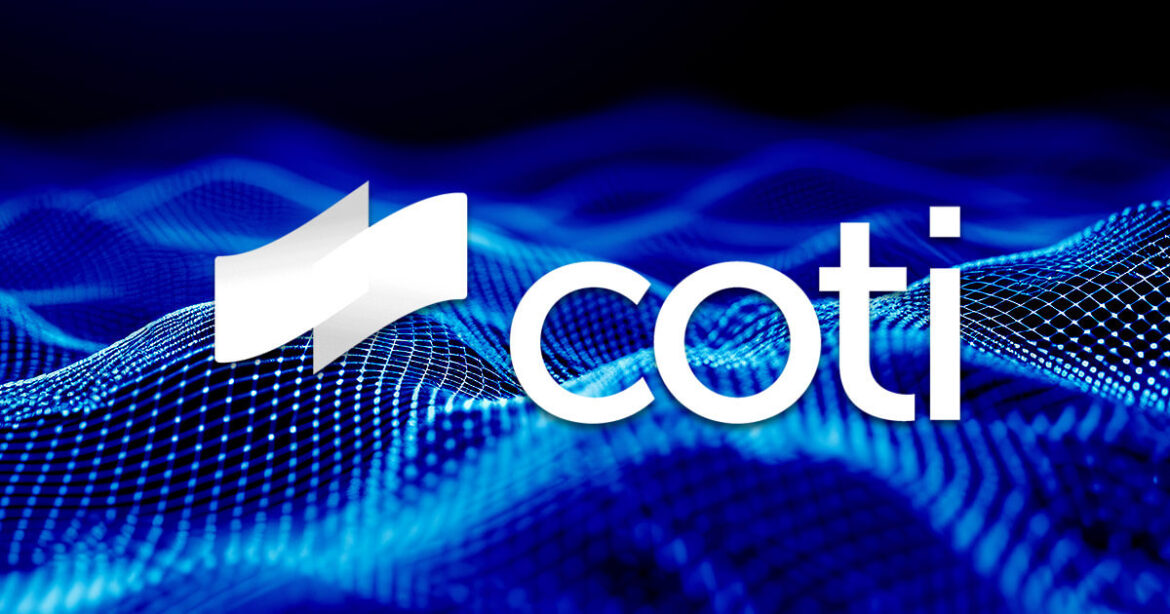 PRESS RELEASE. Privacy is dead in crypto, people that know, know. People who don’t know, should know. That’s why CryptoCanal’s ETHDam Conference will gather people from all sides of the blockchain spectrum to discuss the future of privacy and security. “As a privacy and security-focused conference, we encourage panels on the harder discussion topics,” explains […]
PRESS RELEASE. Privacy is dead in crypto, people that know, know. People who don’t know, should know. That’s why CryptoCanal’s ETHDam Conference will gather people from all sides of the blockchain spectrum to discuss the future of privacy and security. “As a privacy and security-focused conference, we encourage panels on the harder discussion topics,” explains […]
Source link
privacy
Zano Blockchain’s Hard Fork Facilitates Privacy Coin Creation, Introduces Confidential Assets
 The Zano blockchain’s recently completed Zarcanum hard fork (HF4) will enable users and organizations to create custom tokenized assets that meet their specific needs. These custom tokenized assets or confidential assets, will be untraceable on the Zano blockchain. The team believes that without privacy and security, cryptocurrencies cannot achieve the much-hyped widespread adoption. Hosting Multiple […]
The Zano blockchain’s recently completed Zarcanum hard fork (HF4) will enable users and organizations to create custom tokenized assets that meet their specific needs. These custom tokenized assets or confidential assets, will be untraceable on the Zano blockchain. The team believes that without privacy and security, cryptocurrencies cannot achieve the much-hyped widespread adoption. Hosting Multiple […]
Source link

Worldcoin’s adoption continues to grow despite the growing privacy concerns from several jurisdictions.
According to its website, registered users on its platform have reached almost 4 million in less than a year after its launch, registering more than 600,000 accounts within the past week.
Worldcoin, a crypto project co-founded by Sam Altman, is a blockchain-based initiative that allows individuals to validate their human identity through iris scanning. Upon successful verification, users receive a “World ID” credential that can be seamlessly integrated into future applications, proving they are human.
Notably, the project recently announced its integration with several prominent online platforms, including Minecraft, Reddit, Telegram, Shopify, and Mercado Libre.
These milestones reflect the notable adoption rate of the polarizing project despite the regulatory scrutiny about its data-handling practices from various regulatory authorities.
South Korea begins investigations
Earlier today, the South Korean regulatory body, the Personal Information Commission, said it initiated an investigation into Worldcoin’s practices on Feb. 29, prompted by complaints over potential violations of data protection laws.
The commission will scrutinize Worldcoin’s gathering, handling, and possible international transfer of sensitive personal data. It added that any violations of local privacy regulations will prompt immediate regulatory action.
The regulator furthered that Worldcoin was collecting facial and iris data at ten South Korean sites. Worldcoin has repeatedly highlighted that it only collects ‘hashes’ of biometric data and not the visual scans themselves.
South Korea joins a growing list of jurisdictions scrutinizing Worldcoin’s data collection practices. Regulatory bodies in Hong Kong, France, Germany, Britain, and Kenya have also taken an interest, with some issuing directives to halt user registrations.
WLD price performance
Despite these issues, the price of Worldcoin’s WLD token remains strong, largely buoyed by recent market sentiments and the positive developments surrounding the project’s sister company, OpenAI.
CryptoSlate’s data show that WLD increased 246% during the past 30 days. However, its value has slightly corrected by 1.43% to $7.88 as of press time.
Fluidkey Launches to Tackle the Transaction Privacy Issues on EVM Chains
 Fluidkey has announced it has opened its Optimism-based alpha to more users, allowing them to test their private solutions. Fluidkey seeks to solve the transaction privacy problem in EVM chains by leveraging ENS and stealth addresses, allowing users to use a new self-custodial asset for each payment, and segregating these movements to avoid linkability. Fluidkey […]
Fluidkey has announced it has opened its Optimism-based alpha to more users, allowing them to test their private solutions. Fluidkey seeks to solve the transaction privacy problem in EVM chains by leveraging ENS and stealth addresses, allowing users to use a new self-custodial asset for each payment, and segregating these movements to avoid linkability. Fluidkey […]
Source link

In a recent meeting with the European Parliament’s Committee on Economic and Monetary Affairs, Piero Cipollone, a member of the ECB Executive Board, discussed the forthcoming digital euro, specifically its privacy features, infrastructure procurement, and operational standards.
Cipollone’s presentation emphasized the ECB’s proactive approach to collaborating with EU-based entities for the digital currency’s infrastructure. He added that all these entities are registered within the EU and controlled by an EU national.
Privacy concerns
Privacy considerations were a key focus of Cipollone’s remarks. He assured the Parliament that the digital euro would feature superior privacy protections compared to existing commercial payment solutions and include anonymous offline payment transactions.
The ECB executive detailed the planned privacy features of the digital euro, stating that it would collect only a minimal set of pseudonymized data necessary for operations such as settlement. This approach is intended to enhance online payment privacy, addressing public concerns over data protection in digital transactions.
For online transactions, the ECB would access only a necessary, pseudonymized data set for operational purposes like settlement, promising users greater data control than current private payment systems offer.
Moreover, according to Cipollone, the digital euro is designed with top-tier cybersecurity measures to safeguard user data and transactions.
Cipollone said the digital euro has been designed to mirror the accessibility and reliability of cash, thereby reducing reliance on global payment processors and ensuring uniform service across the eurozone. He added:
“Cash and a digital euro have the same objective: ensuring that everyone, regardless of their income, can pay in any situation of daily life. This is a fundamental right. And it should be protected in the same way in all parts of the euro area.”
He likened the digital euro’s infrastructure to public railways, suggesting it would be state-owned yet accessible to various private operators.
Implementation and stability
Cipollone also touched on the importance of a digital euro rulebook to ensure consistent implementation across the eurozone, aiming to reduce dependency on international payment processors by providing a uniform set of rules, standards, and procedures.
Addressing financial stability, the ECB executive outlined measures to prevent the digital euro from competing with traditional savings accounts, including interest-free holdings and restrictions on the digital euro’s accumulation by corporations and financial institutions.
He also mentioned plans to facilitate seamless transactions by linking CBDC wallets with bank accounts, circumventing the need for wallet pre-funding.
The dialogue between the ECB and the European Parliament is part of the preparatory phase for the digital euro, with the ECB providing technical input to co-legislators. The ECB’s efforts aim to prepare for a potential digital euro launch within a framework that prioritizes privacy, operational readiness, and financial stability.
COTI’s privacy-focused Ethereum L2 development reached a critical milestone by successfully integrating its Multi-Party Computation (MPC) protocol. Its token price surged approximately 55% following this technical achievement.
MPC is a powerful cryptographic tool that allows several parties to work together on a computation using their private data without revealing that data to each other. COTI confirms that the successful implementation of the MPC protocol represents the first in a series of technical goals they will meet before COTI V2 is fully deployed.
COTI V2 architecture and MPC integration.
COTI V2 architecture hinges on MPC technology, ensuring the privacy of its Layer 2 computations on Ethereum over private inputs executed without compromising data confidentiality. Participants supply encrypted data to an MPC’ black box’, which executes specific computational processes. MPC results are delivered in a way that safeguards data integrity throughout, even amidst potential external scrutiny. Each MPC entity, dubbed an “MPC endpoint,” will later integrate into the project’s custom Extended-EVM execution module.
MPC endpoints facilitate collaborative computation without sacrificing data privacy. This advancement significantly improves EVM functionality, unlocking support for more diverse dApps within a framework offering transparency alongside essential privacy capabilities. This integrated MPC architecture provides greater privacy and security for complex computations on-chain, potentially fueling wider adoption of Ethereum technology as use cases expand.
To facilitate MPC use, users first establish cryptographic key material. Next, data is submitted in encrypted form for safe storage. Users then submit workloads in secure MPC bytecode, with operations like addition and multiplication taking place on confidential data without exposing those original values. Workloads can generate public outputs or outputs specifically encrypted to remain accessible only to chosen users.

Testing and future plan.
Per COTI, a simulated state was tested within MPC modules as they collaboratively generated a ‘garbled circuit.’ This cryptographic concept represents a specific computational function and has inherent security, being inherently single-use. This provides forward and backward secrecy through design.
This first development milestone includes completing the protocol, including design and algorithms. Importantly, COTI developers demonstrated the capability to securely input and output data using distributed keys, enabling advanced encryption and decryption functions without compromise.
The achievement of this privacy-focused landmark emphasizes the progress towards COTI’s ambitious Layer 2 solution. A COTI blog post states,
“The creation and implementation of a secure MPC protocol is the first of many development milestones we’ll reach throughout the year. Stay tuned for further COTI V2 updates as development continues.”
Hong Kong authorities investigating Worldcoin over data privacy concerns

The Office of the Privacy Commissioner for Personal Data (PCPD) in Hong Kong has initiated an investigation into Worldcoin over data privacy concerns related to its collection of biometric data, according to a Jan. 31 press release.
The PCPD said it executed court warrants to enter six Worldcoin premises on Jan. 31 in Yau Ma Tei, Kwun Tong, Wan Chai, Cyperport, Central, and Causeway Bay.
Hong Kong raids
According to the PCPD, the investigation focuses on the potential misuse of personal data, particularly the biometric data collected by Worldcoin in exchange for cryptocurrency tokens. The regulator said there are significant risks in collecting such sensitive data, and there are concerns that Worldcoin is in “contravention” of regulatory requirements related to data collection and storage.
The PCPD’s action aims to determine whether Worldcoin data collection practices comply with the Personal Data (Privacy) Ordinance (PDPO). The operation involved the collection of documents and information from Worldcoin to review its data collection and processing methods.
The watchdog has advised the public to consider the necessity, purpose, and retention period of biometric data collection before participating in such activities. The regulator emphasized the sensitivity of biometric data, given its unique and unalterable nature.
The PDPO mandates that organizations collect personal data for lawful purposes and secure the data against unauthorized or accidental access and use. It also restricts using personal data for new purposes without explicit consent.
The PCPD also requested that the public submit any complaints and information regarding Worldcoin’s data practices.
Worldcoin’s regulatory woes
The Worldcoin project is undergoing similar investigations in several countries due to privacy concerns over collecting biometric data, notably iris scans, for digital identity verification and cryptocurrency distribution.
The Bavarian State Office for Data Protection Supervision in Germany initiated its investigation in 2022, driven by concerns about the scale of sensitive biometric data processing. The probe focuses on the legality of Worldcoin’s practices under the EU’s strict data protection regulations, particularly scrutinizing issues of user consent and the clarity of information provided to users about their data usage.
Similarly, the Argentine Agency for Access to Public Information (AAIP) launched an investigation into the project after a surge in local interest. The AAIP is examining Worldcoin’s adherence to local data protection laws, specifically focusing on how the company safeguards the privacy of its users in Argentina. This includes reviewing the security measures Worldcoin employs to protect the collected biometric data.
Meanwhile, the Kenyan government has suspended Worldcoin’s operations in the country following an investigation deemed its activities to be “espionage.”The project has been working with the authorities to resolve the situation.
Binance shakes privacy coin market with possible Zcash and Monero delisting threats

Crypto exchange Binance said it could delist three privacy tokens, including Zcash (ZEC), Monero (XMR), and Horizen (ZEN), because they are at risk of no longer meeting its listing criteria, according to a Jan. 4 statement.
As such, the exchange placed a “Monitoring tag” on these privacy tokens and other digital assets like Aragon, Firo, Keep3rV1, MobileCoin, Reef, and Vai.
Binance’s decision, alongside the broader market drawdown, has significantly impacted these digital assets as the privacy sector is down more than 6% during the last 24 hours and by nearly 10% in the past week, according to CryptoSlate’s data.
During the past day, Monero, Zcash, and Horizen are down 5%, 12%, and 16%, respectively.
Meanwhile, Binance now requires users interested in these assets to take quizzes every 90 days to ensure they understand the inherent risks of trading them on its spot and/or Margin platforms.
Why is Binance delisting them?
Binance stated that:
“Tokens with the Monitoring Tag exhibit notably higher volatility and risks compared to other listed tokens. These tokens are closely monitored, with regular reviews conducted. Keep in mind that tokens with the Monitoring Tag are at risk of no longer meeting our listing criteria and being delisted from the platform.”
The exchange further clarified that its decision was part of a periodic project review, assessing criteria like team commitment, trading volume, network security, and liquidity.
Last year, Binance said it would delist several privacy coins in compliance with European local laws and regulations. At the time, market observers pointed out that the move was attached to the high regulatory scrutiny privacy coins have attracted globally.
OKX, another top cryptocurrency platform, revealed intentions to delist several privacy-focused cryptocurrencies, including Zcash and Monero, by Jan. 5 because they do not align with its listing criteria.
As of press time, Binance has yet to respond to CryptoSlate’s request for additional commentary.
OKX delisting triggers price fall for privacy coins Zcash and Monero

The price of several privacy-focused cryptocurrencies, including Zcash (ZEC) and Monero (XMR), fell the past day after crypto exchange OKX said on Dec. 29 that it would delist them on Jan. 5 because they do not align with its listing criteria.
Data from CryptoSlate shows that the entire ‘privacy cryptos’ sector witnessed a decline of 3.4%, impacting major cryptocurrencies across the board. During the reporting period, stalwart privacy coins like Monero and Zcash dipped by 2.4% and 9.37%, respectively.
Other tokens to be delisted by OKX include Dash, Powerpool, and Horizen, which fell by as much as 14% during the reporting period.
“We will delist the above-mentioned trading pairs at the delisting times listed above. We advise users to cancel orders pertaining to these trading pairs before the delisting. Otherwise, the system will automatically cancel these orders. The cancellation may take 1-3 working days,” OKX added.
Concurrently, OKX has halted deposits for the affected cryptocurrencies and intends to cease withdrawals by March 5, 2024, allowing holders adequate time to withdraw their assets. Nevertheless, once the delisting process is complete, trading these digital assets will become impossible.
Curiously, certain privacy coins like MINA remain listed on the exchange, experiencing a 7.5% increase following this delisting announcement.
However, it’s worth noting that OKX is not exclusively delisting privacy tokens. The exchange also included other trading pairs belonging to digital assets like Kusama, Flow, Kyber Network, and Aragon in the assets to be delisted.
Why is OKX delisting privacy coins?
While OKX hasn’t explicitly detailed the reasons behind its decision, observers have suggested that the move might have been influenced by the exchange’s effort to comply with regulatory measures.
Privacy coins have attracted regulatory scrutiny due to concerns about their potential use in illicit activities within the crypto space.
Earlier in the year, Binance said it would delist several privacy coins in compliance with local laws and regulations.
DeFi Education Fund files amicus brief over financial privacy concerns in IRS case

In a landmark case that marks the first opportunity for the U.S. Supreme Court to weigh in on the Fourth Amendment rights of cryptocurrency users in the context of IRS investigations, the DeFi Education Fund (DEF) has filed an amicus brief urging the court to consider the unique aspects of crypto technology when evaluating privacy rights.
The case — IRS vs. James Harper — revolves around the government ordering cryptocurrency exchange Kraken to provide data related to cryptocurrency transaction records of more than 14,000 people, including Harper, for tax enforcement purposes.
Kraken said it tried to fight back against the order as it considered it an overreach of authority, and the requests could have compromised users’ personal data like IP addresses, net worth, employment data, and sources of wealth.
The case outcome is expected to have far-reaching implications for the intersection of digital privacy and law enforcement.
Fourth Amendment concerns
The DeFi Education Fund argued that the court must consider the differences between cryptocurrency technology and traditional financial institutions (TradFi) when addressing Fourth Amendment concerns.
DEF chief legal officer Amanda Tuminelli said blockchain data provides authorities with “an intimate view into a person’s financial life in the past, present, and future” that has not been possible before.
She added that this potentially violates the Fourth Amendment rights of American citizens.
Tuminelli emphasized the importance of upholding privacy rights in the digital age, citing the Supreme Court’s guidance in Kyllo v. United States (2001). She stated:
“When old precedents meet new technology, courts must ‘assure preservation of that degree of privacy against government that existed when the Fourth Amendment was adopted.’”
The DeFi Education Fund’s amicus brief raises three significant considerations for the court’s deliberation.
First, it argued that the court should not treat the Fourth Amendment protections differently in cases involving information held by third parties.
The organization asserts that Carpenter v. United States (2018) should be considered the most recent and authoritative statement on the “third-party” doctrine — effectively limiting the scope of government access to private data.
The DEF provided detailed legal analysis in the filing to support its position, emphasizing that Carpenter’s ruling reduced the relevance of two older cases that had previously formed the foundation of the third-party doctrine.
Precedents
The brief contends that these older cases never announced a broad and unqualified rule and were contingent upon specific limitations that the government cannot demonstrate in this case.
Second, the amicus brief underscored the unique nature of cryptocurrency transactions, emphasizing that they are not analogous to traditional banking. Unlike traditional banks, cryptocurrency transactions are recorded on a public ledger, making them traceable by anyone.
The DEF asserted that the government’s request to access cryptocurrency transaction records provides an unprecedented window into users’ financial lives and personal associations.
The lobby group’s legal argument delves deep into the mechanics of cryptocurrency technology, explaining how pseudonymous addresses and blockchain data enable the government to access a wealth of information about individuals’ financial activities, associations, and more.
The brief argued that this level of insight far exceeds what is attainable through traditional banking records.
Lastly, the brief invokes Supreme Court precedents, such as Kyllo v. United States and Carpenter, to argue that the court must adapt its approach to privacy concerns in light of evolving technology.
It contends that the government’s ability to access unlimited unrelated transactions through cryptocurrency technology necessitates a reevaluation of existing Fourth Amendment jurisprudence.
The case holds immense significance for the cryptocurrency community and digital privacy advocates. It hinges on the delicate balance between law enforcement’s investigative powers and individuals’ right to financial privacy in the digital age.
As the Supreme Court prepares to hear this case, the crypto industry and privacy advocates eagerly await its decision. The final ruling is expected to set a precedent for protecting digital assets and personal information in an ever-evolving technological landscape.









